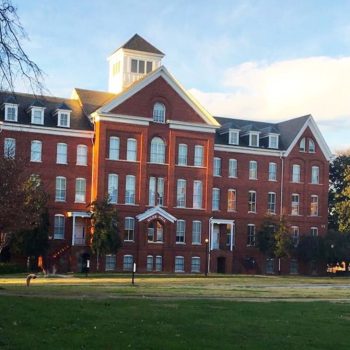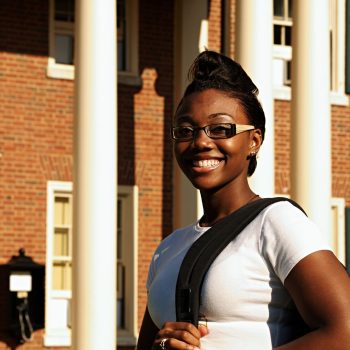There are 101 historically Black colleges and universities, also known as HBCUs, in the United States. Many of the best HBCUs were founded between 1837 and 1870. The first HBCU created was Cheyney University of Pennsylvania, which opened in 1937. A Quaker named Richard Humphries founded Cheyney. Founders opened HBCU colleges to give Black students the same opportunities as college-bound White students. Among the founders of some of the most prestigious HBCUs was Oliver Otis Howard. Howard was a White general who sought to preserve the Union. His deeply rooted values led him to create Howard University, which ultimately provided a valuable education for over 150,000 freed slaves. Following the success of the original HBCUs, the need and number of HBCU colleges continued to grow, with the majority being founded before and around the Civil Rights Act of 1964.
HBCUs are vital to our country. They have historical and present-day importance by educating Black students when white institutions in the South would not admit them. Although when created, HBCUs promoted the education of Black Students, the colleges do admit students of other races. According to the National Center for Education Statistics, 29% of the population at an HBCU college do not identify as black. Like any other system of colleges–Big Ten, Ivy League, and the University of California, HBCU colleges have different strengths, levels of prestige and exclusivity, student demographics, and environments that make them unique in their own right. Some of the best HBCU colleges include Spelman College, Howard University, Xavier University in Louisiana, Hampton University, Morehouse College, Tuskegee University, Florida A&M University, North Carolina A&T State University, Fisk University, and Claflin University.
HBCU colleges range from private to public. Their academic offerings and strengths range from Science, Engineering, Technology, and Math to the Arts. HBCUs produce the highest number of black doctors, engineers, and artists alike. The HBCU college for you will depend on what you’re looking for in your college experience. For instance, check out Morehouse College if you are looking for an all-men’s school. If you’re looking for an all-women’s college, look into Spelman College. What about academic offerings? Whether you are interested in studying business management and administration, engineering, or psychology, many of the best HBCU colleges might be the perfect fit for you.
Whatever your passions, interests, or background, you can be sure to find an HBCU that feels like home. You really can’t go wrong in choosing between one of the best HBCU colleges. Continue reading, and let’s break down the best HBCU colleges to give you somewhere to start in narrowing down your list.

Key Takeaways
- HBCUs play an important role in educating Black students.
- This post presents the 10 best HBCUs of 107 institutions in the U.S.
- The best HBCU for you depends on your major, academic profile, and preferences.
Table of Contents
Spelman College
Spelman College is a very reputable women’s liberal arts college located in Atlanta, Georgia. The college is known for being the oldest HBCU in the country for women. Given that Spelman is a liberal arts college, some of the most popular majors include Psychology and English Language and Literature. Famous Spelman alumni include Alice Walker, writer of monumental books such as “The Color Purple”, and Marian Wright Edelman, a prominent civil-rights activist. Spelman College’s cost of attendance is just over $28,000 per year. Financial aid is available in the form of grants and scholarships to those who need it. 87% of students enrolled in Spelman receive financial aid. While at Spelman, students can take advantage of extracurricular options ranging from sororities to musical organizations to journalism.
According to Spelman’s website, applicants are reviewed holistically, but the average profile of a student would include a GPA of 3.85, an SAT score of 1203, and an ACT composite score of 27. Spelman does accept both AP and IB credit for courses depending on the score achieved and the subject to which the credit is being applied. The college’s graduation rate is fairly high at 76%. Spelman’s average class size is an enviable 30 students per class, and even less in major-specific courses. Spelman takes campus safety very seriously, with over 90% of their campus security officers being trained law enforcement officers.
More information about Spelman can be found on their website.

Howard University
Howard University is located in Washington, D.C. Howard is a private university without any religious affiliations. Howard’s tuition is reasonable for a private university with tuition cashing in at just above $20,000 per year. Financial aid is available for those who need it in the form of scholarships, grants, and loans. Some of Howard’s most popular majors include Biology, Political Science and Government, and Communications. Howard has an impressive number of distinguished alumni, including U.S. Supreme Court Justice Thurgood Marshall, Phylicia Rashad, and Kamala Harris. Howard University does have a strong, vibrant Pan-Hellenic Council with several different participating historically black sororities and fraternities. If you aren’t into Greek life, some of their other extracurricular activities include various musical endeavors, intramural sports, and journalism.
The admissions profile for the class of 2025 includes a 35% acceptance rate of students averaging an unweighted GPA of 3.66, an SAT composite score of 1184, and an ACT score of 24. Howard University takes safety seriously, and daily and yearly crime logs can be found on their website. Howard utilizes the slogan “see something, say something” to encourage students to report any suspicious activity so that it can promptly be put to a stop. Students can also sign up to receive safety alert notifications.
To see how you measure up, take a look at who Howard admitted into the class of 2025, which can be found here.

Xavier University (Louisiana)
Xavier University, located in New Orleans, Louisiana, is a Catholic HBCU. Xavier is known for its emphasis on service and leadership, with the clear mission of creating leaders to create a “more just and humane society.” Some of the most popular majors at Xavier University include Biology, Chemistry, and Psychology. Xavier’s cost of attendance is reasonable for a private university, resting at about $22,000 per year. Xavier University has a very supportive financial aid department. Financial aid exists in the form of loans, grants, and scholarships. Notable alumni from Xavier include Candace Stewart and LaToya Cantrell. Xavier University does have an active Greek life with 8 fraternities and sororities. Other extracurricular activities include intramural sports such as basketball, volleyball, and football.
According to last year’s admitted class, the average GPA at Xavier is 3.67. They are a test-optional university in light of the pandemic, but of those who did submit their test scores, the average was 22 on the ACT and 1100 on the SAT. Xavier’s graduation rate is 69%. Xavier has a well-staffed University Police Department, which “will provide the highest levels of integrity, professionalism, and customer service in support of Xavier University’s mission to educate future leaders who will continue to create a more just and humane society” (Xula.edu). Xavier University cares both about its students and the impact they will have on the world upon graduation.
More information can be found on their website.
Hampton University
Hampton University is an HBCU located in Hampton, Virginia. Originally founded as an Agricultural and Industrial School, Hampton is now known for being one of the top HBCUs in the country. Hampton covers a wide variety of majors and programs. Some of the most popular majors at Hampton University include Biological & Biomedical Sciences, Business, Management, Marketing, and Communication and Journalism. The average cost of attendance is estimated at nearly $24,000 per year, although financial aid is available to students who qualify in the form of scholarships, grants, and loans. Among Hampton’s most notable alumni are Booker T. Washington, Mary Jackson, Wanda Sykes, and Justin Durant. If you are interested in participating in Greek life at Hampton University, you are in luck. Hampton has both Pan-Hellenic sororities and fraternities. If you aren’t interested in Greek life, you can take advantage of some of Hampton’s many student organizations. Hampton has very high standards and is quite exclusive.
The average student accepted and enrolled in Hampton University had a high school GPA of 3.88, as well as an average composite SAT score of 1130 and a composite ACT score of 22. Hampton’s graduation rate is 57%. According to its website, Hampton University takes safety very seriously with a full-time, fully-trained, professional university police department that conducts safety patrols at all times by bicycle, foot, and police vehicle.
To learn more about the prestigious Hampton University, check out their website.
Morehouse College
Morehouse College, a historically black men’s liberal art college located in Atlanta Georgia is known for creating leaders. Some of the top majors at Morehouse include Business Administration and Management, Sociology, Psychology, Biology, and Economics. The estimated cost of attendance is slightly over $25,000, but financial aid is offered in the form of loans, grants, and scholarships for those who need it. Morehouse’s list of (very) famous alumni includes Martin Luther King Junior, Samuel L. Jackson, and John David Washington. In terms of Greek life, Morehouse College does have fraternities. Even if you are not interested in joining a fraternity, Morehouse does offer a wide range of other extracurricular activities from marching band to jazz band to choral groups to student journalism. With such a wide selection, every student is sure to find some activity they feel passionate about at Morehouse.
Morehouse’s 6-year graduation rate is 54%, with plans in place to increase that rate over the next few years. Morehouse is a less exclusive school. The average student profile of a student being accepted to Morehouse includes an unweighted GPA of 3.2, an SAT composite score of 1058, and an ACT composite score of 21. In terms of campus safety, Morehouse has emergency call boxes and 24-hour security officer patrols to ensure that everything is safe at all times. If students have incidents to report, there is a specific number they can call. If you would like to learn more about Morehouse, click to their website.

Tuskegee University
Tuskegee University is located in the relatively small town of Tuskegee, Alabama. The university is known for turning out the largest number of Black aerospace engineers in the entire country. Tuskegee University has a booming Pan-Hellenic Greek population, but the options are plentiful for those who would rather go a different route. Many of the top majors at Tuskegee are in the STEM field, with the most popular majors including Mechanical Engineering, General Biology, and Animal Science. The average estimated cost of attendance is slightly under $20,000 per year. For students who need it, financial aid is available in the form of scholarships, loans, and grants. Famous alumni who have graduated from Tuskegee University include Lionel Richie, Lonnie Johnson, and Ralph Ellison.
Tuskegee is less competitive than some of the other HBCUs. Tuskegee University’s average enrolled student has a high school unweighted GPA of 3.1. The student profile also includes an average composite SAT score of 955 and an average composite ACT score of 21. It is evident that Tuskegee University takes student safety very seriously. The college has a fully operational campus police department that patrols all areas of the campus at all hours. Tuskegee also has a great program where students who feel unsafe at night can be escorted by an officer to wherever they need to go.
To learn more about this fantastic HBCU, check out Tuskegee University’s website.
Florida A&M University
Florida A&M University is a historically Black Agricultural and Mechanical University located in Tallahassee, Florida. Florida A&M is known for being the third biggest HBCU in the country. Some of the top majors at Florida A&M are Business Administration and Management and Criminal Justice/Safety Studies. The estimated cost of attendance for Florida A&M University is much more affordable than the average HBCU ringing in at just over $3,000 for in-state students and just under $15,000 for out-of-state students. Notable Florida A&M University alumni include Andrew Gillam and Anika Noni Rose. If you are interested in Greek life, Florida A&M University might be a great option for you. Florida A&M has a vibrant set of Pan-Hellenic Greek sororities and fraternities. The average profile of a student at Florida A&M University has a high school unweighted GPA of 3.4, a composite SAT score of at least 1030, and a composite ACT score of 21. In terms of campus safety, Florida A&M University is fully equipped and ready to prevent incidents before they even happen.
Interested students should check out Florida A&M University’s highly interactive website.
North Carolina A&T University
North Carolina A&T University is located in Greensboro, North Carolina. North Carolina A&T is known for its thriving engineering programs. The average cost of attendance is less than $4,000 for in-state students and less than $17,000 for out-of-state students. North Carolina A&T’s graduation rate is 52%. Greek life does exist at North Carolina A&T on a very small scale. There is financial aid available in the form of loans, grants, and scholarships for those that qualify.
Notable alumni include Jesse Jackson, Ronald McNair, and Franklin McCain. North Carolina A&T University takes safety very seriously and they do have plans in place to improve student security.
To find out more about North Carolina A&T University, check out their website.
Fisk University
Fisk University, located in Nashville, Tennessee is known for educating free slaves after the Civil War. Some of Fisk’s most popular majors include Biology, Business Administration and Management, Molecular Biology, History, and Psychology. The average cost to attend Fisk University is just under $20,000, but financial aid is available in the form of loans, grants, and scholarships to those who need it. Fisk does have Greek life operating under the National Pan-Hellenic Council. Notable Fisk alumni include John Lewis, W. E. B. Du Bois, Ida B. Wells, and Booker T. Washington. The average student who gets accepted to Fisk University has an unweighted GPA of a 3.1, a composite SAT of 1090, and a composite ACT of 21. Fisk University has a very safe campus. In 2019, there were no safety-related incidents reported at all.
To find out more details about Fisk University, you can visit their website.
Claflin University
Claflin University is a private university located in Orangeburg, South Carolina. Claflin is associated with the United Methodist Church. Some of the top majors of students who attend Claflin include Psychology, Business Administration and Management, Mass Communications, and Criminal Justice/Law Enforcement Administration. The average cost to attend Claflin is just over $16,000, although financial aid is available to those who need it in the form of grants, loans, and scholarships. Claflin does have Greek life if that is something you are interested in. If you don’t think you want to participate in Greek life, Claflin also offers the opportunity to join the ROTC and many various student organizations.
The average high school GPA of admitted students is a 3.28, an average SAT composite score of 960, and an average ACT composite score of at least 17. Claflin’s graduation rate in 6-years is 49.4%. Claflin University places a high emphasis on student and campus safety. The university has a plan, a mission statement, and a vision statement dedicated to reducing crime on the campus. Claflin does a lot to live out their mission, which includes “scholarship, achievement, service, and fellowship”. Notable alumni include E. Roger Mitchell and Mel King.
For more information, check out Claflin University’s website.
FAQ’s about the best HBCUs
How many historically Black colleges and universities are there?
This post discussed ten of the best HBCUs, but there are 101 HBCUs in the United States.
Who should consider attending an HBCU?
If you are seeking a quality education and want to experience the institutions that helped to shape some of the most important Black leaders in American history, you should consider attending an HBCU. These colleges and universities are particularly helpful and supportive if you are pursuing a career in a STEM field since many HBCUs have historical connections to these fields, particularly engineering. While many HBCUs have very strong STEM programs, a great deal of them also have strong liberal arts and business departments. Finally, if you want to develop as a person, a leader, and a changemaker, you should definitely consider attending an HBCU.
Do HBCUs offer scholarships?
Most HBCUs have very supportive financial aid departments. Any student who qualifies can potentially receive aid in the form of scholarships, grants, and loans.
What is the hardest HBCU to get into?
Howard University is the most expensive HBCU to get into with an acceptance rate of 32%. Over 25,000 students applied. To put that into perspective, Howard’s entire undergraduate population is just above 6,500.
What is the most expensive HBCU?
Spelman College is the most expensive HBCU at just over $43,000 for an entire year, with $25,248 of that being tuition, $2,942 being student fees, and $15,062 being room and board.
Conclusion + Next Steps
As you can see, there are many quality options for those seeking to attend a historically Black college or university. There really is an HBCU for everyone interested. Of course, the best HBCU college for you will depend on what you are looking for. The range of admission rates, average student profiles, campus experiences, and diverse majors give interested students ample opportunity to choose the school that best meets their needs. To give yourself the best chance at getting into the college of your dreams, check out 7 Tips to Stand Out in a College Application.

